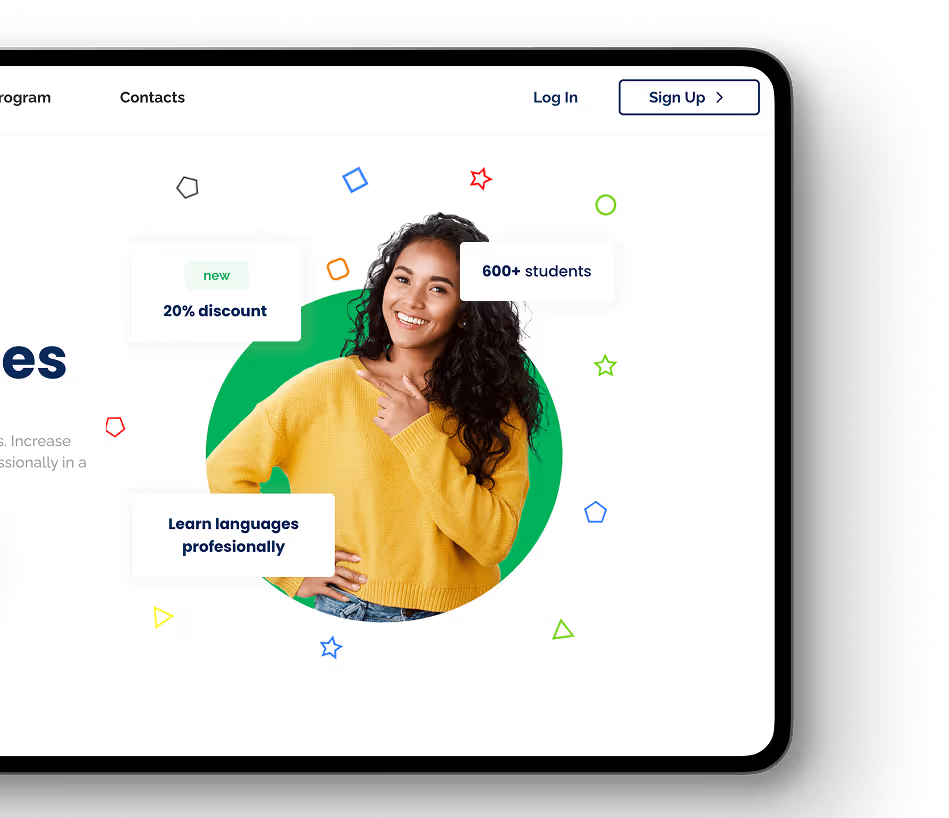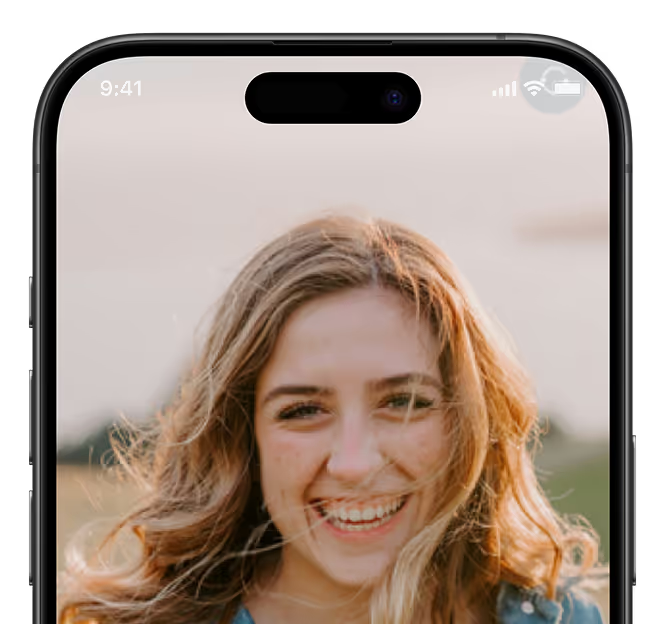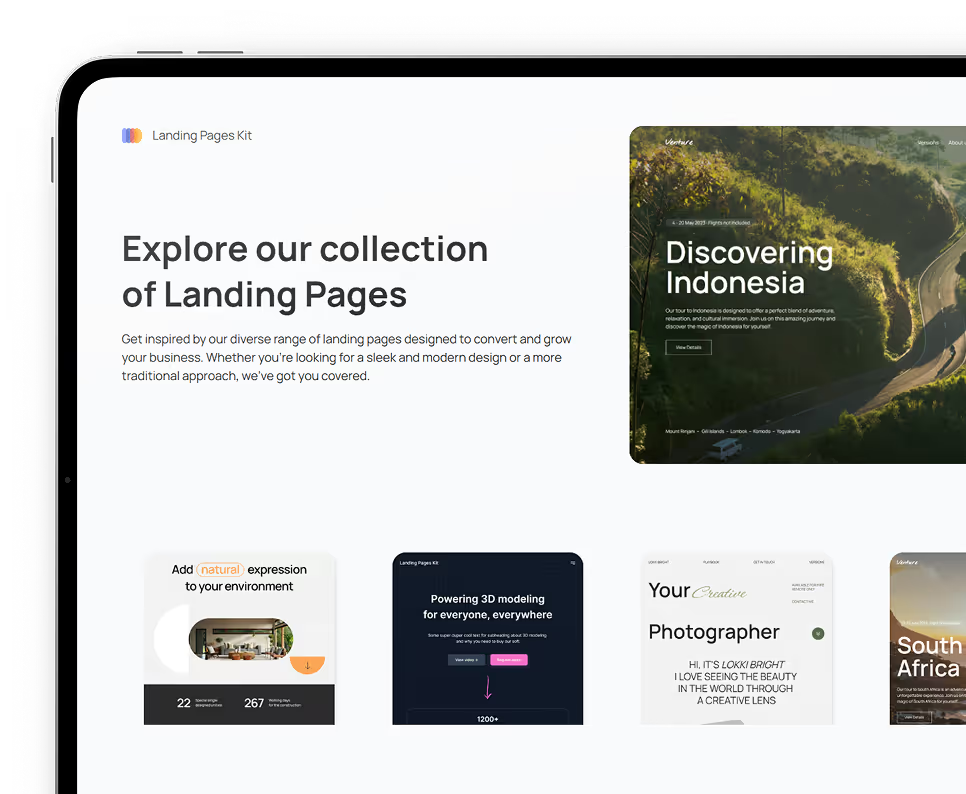February 29, 2024
•
10
min read
What is The Best Language for Mobile App Development?
Empower your mobile app development journey with the right programming language, ensuring performance, scalability, and user satisfaction.

Choosing the right programming language for mobile app development is crucial, as it lays the foundation upon which the app's functionality, scalability, and maintainability are built.
The right language can significantly streamline the development process, enabling developers to implement features efficiently and effectively.
Additionally, it impacts the ease with which the app can be updated or expanded in the future, catering to evolving user needs or incorporating new technologies.
The programming language chosen directly influences the performance of the mobile app and the user experience it delivers.
Languages optimized for mobile platforms can leverage device features better, ensuring smoother operation, faster load times, and more reliable performance under varied conditions.
High-performance apps, in turn, contribute to a seamless user experience, helping to retain users, reduce frustration, and ultimately drive engagement and satisfaction. Selecting an ill-suited language, however, may lead to sluggish performance and a subpar user experience, affecting the app's reception and success in the competitive market.
To dive deeper into the various approaches to mobile app development, consider reading our article on comparing PWA, hybrid, cross-platform, and native apps. Additionally, understanding the differences between web apps and mobile apps can provide further insight into how programming languages impact app functionality and user experience.
Foundational Considerations
Before jumping into the specifics of mobile app development languages, it's crucial to grasp the foundational elements that play a pivotal role in the mobile app development process.
These considerations help in making an informed decision that aligns with project goals and requirements.
Understanding the Mobile App Development Ecosystem
The mobile app development ecosystem is a complex landscape, encompassing various platforms (iOS, Android, and cross-platform), development tools, and user expectations.
It's a space where technology is rapidly evolving, influenced by user demand for seamless, intuitive apps and the technological advancements that make this possible.
A deep understanding of this ecosystem allows developers to choose a tool and object-oriented programming language that is not only current but also forward-looking, ensuring the longevity and relevance of their applications.
Key Factors Influencing Language Selection
Choosing the right programming language for mobile app development hinges on several critical factors. These factors guide developers in navigating the vast array of languages available, helping them narrow down choices to those most suitable for their specific project needs.
Platform Compatibility
The target platform (iOS, Android, or both) significantly influences language choice. For iOS, Swift and Objective-C are predominant, whereas Android leans towards Java and Kotlin.
For projects aiming at both platforms, cross-platform languages like Flutter (Dart), React Native (JavaScript), and Xamarin (C#) offer viable paths.
Performance Requirements
Different apps have varying performance needs based on their functionality and user expectations. For high-performance applications that require smooth animations or the handling of complex calculations, languages that compile natively (e.g., Swift for iOS, Kotlin for Android) might be preferable.
In contrast, for apps where performance is less critical, cross-platform technologies can significantly reduce development time and costs.
Developer Skillset
The skills and expertise of the development team are paramount. A language that the team is proficient in can accelerate development and reduce the learning curve, thus affecting project timelines and quality.
It also allows for a deeper understanding of best practices and nuances, which can greatly enhance the app's overall quality and performance.
The Contenders: Popular Languages
When considering the best one for mobile app development, several of the most popular programming languages stand out, each with its unique advantages and use cases:
Java
A veteran in the field, Java is the official language for Android app development. Its portability across platforms and extensive community support make it a go-to choice for many developers.
For some people, Java is the best programming language, whereas others prefer relying on different options.
Swift
Swift is the brainchild of Apple for iOS development. It is renowned for its speed, safety features, and modern syntax that makes coding more straightforward, thus accelerating the development process for iOS apps.
Bubble
Diverging from traditional coding languages, Bubble is a visual programming language that allows developers to build web and mobile applications without writing code. Its drag-and-drop interface makes app development accessible to non-programmers.
Kotlin
Kotlin is a relatively newer player, rapidly gaining popularity as an alternative to Java for Android development. It is fully interoperable with Java and reduces the amount of boilerplate code, making app development faster and more enjoyable.
React Native
Developed by Facebook, React Native enables developers to build mobile apps using only JavaScript. It's loved for the ability to create native apps for both Android and iOS platforms simultaneously, reducing development time and cost.
Flutter
Flutter, created by Google, is a UI toolkit for building natively compiled applications for mobile, web, and desktop from a single codebase. It is known for its fast development cycles, expressive UIs, and ability to deploy to multiple platforms with great performance.
Comparative Analysis
When selecting the ideal language for mobile app development, it's critical to conduct a comparative analysis across several key dimensions to make an informed decision.
The performance of a mobile app can significantly vary depending on the development language and the platforms (iOS, Android, or cross-platform) it targets.
Native languages such as Swift for iOS and Kotlin for Android are optimized for their respective platforms, offering superior performance, smoother animations, and quicker load times.
Cross-platform languages or frameworks, while more versatile, may compromise on performance to some extent due to the extra layer they introduce between the code and the native platform.
Development speed and efficiency are crucial for timely project completion and resource allocation. High-level languages and frameworks that support cross-platform development, such as Flutter or React Native, can significantly expedite the development process by enabling code reuse across iOS and Android.
This saves time and resources but might necessitate additional optimization for platform-specific features or performance enhancements.
The availability of community support and resources is a vital consideration, as it affects the ease of problem-solving and the learning curve for developers.
Languages and frameworks with a large and active community, such as JavaScript for React Native or Dart for Flutter, tend to have extensive libraries, documentation, and forums.
This community support can be invaluable for both novice and experienced developers, facilitating quicker issue resolution and access to a wealth of shared knowledge.
Navigating Platform-Specific Needs
When developing mobile applications, understanding and navigating the intricacies of platform-specific needs is crucial for success. Each platform, whether Android or iOS, has its unique environment, user expectations, and technical requirements.
Android App Development
Android, being an open-source platform, offers more flexibility in terms of design and development, but this freedom comes with its challenges.
Language Preferences
The primary languages for Android app development include Java and Kotlin. Java has been the standard for years, offering robust community support.
Kotlin, on the other hand, is a newer, more modern language that brings more concise coding and improved safety features, making it increasingly preferred by developers.
Integration Challenges
Android apps often face integration challenges, particularly because of the wide variety of device types and versions of the Android operating system.
Developers must ensure their applications are compatible across different screen sizes, resolutions, and hardware specifications, which can complicate the development process.
iOS App Development
iOS app development, while being more restricted in terms of design freedom, offers a more uniform and controlled environment, leading to potentially smoother development cycles.
Language Preferences
Swift and Objective-C are the main languages for iOS development. Swift, being the more modern of the two, offers easier code readability, faster development times, and fewer errors in coding, making it increasingly popular among developers. Objective-C, however, remains relevant for maintaining older applications.
Unique Considerations
Developing for iOS means dealing with a more homogenous set of devices. However, there are unique considerations, such as following Apple's strict design guidelines and passing the App Store's rigorous review process.
These factors necessitate a careful approach to both design and functionality, ensuring that apps meet Apple's standards to be listed on the App Store.
Future-Proofing Your App
In the rapidly evolving domain of mobile app development, choosing a programming language that is both popular and forward-compatible can significantly impact the longevity and adaptability of your application.
Recent trends have shown a shift towards languages that support cross-platform development, such as Kotlin and Swift.
These languages not only facilitate the creation of native apps for Android and iOS but also align with future technological advances due to their open-source nature and active community support.
Staying abreast of current language trends is crucial to ensure that your app remains relevant and can easily adapt to new platforms and devices.
Emerging technologies like augmented reality (AR), virtual reality (VR), and the Internet of Things (IoT) are redefining user experiences and expectations from mobile applications.
To future-proof your app, it's essential to select a programming language that seamlessly integrates with these technologies.
Languages that offer robust libraries and frameworks for AR, VR, and IoT compatibility, as well as those that support machine learning and artificial intelligence, are positioning themselves as future-proof choices for developers.
Ensuring that your app is compatible with these technologies from the outset can greatly enhance its long-term viability and success.
Optimizing App Performance
Performance tuning is essential for enhancing the user experience and ensuring the smooth operation of mobile apps. This process involves various strategies aimed at reducing app load times, improving responsiveness, and minimizing resource consumption.
Key strategies include effective memory management to prevent leaks, optimizing image sizes and resolutions to reduce load times, and employing efficient data structures and algorithms to enhance processing speed.
Additionally, caching frequently accessed data can reduce the demand on system resources, further improving app performance.
The choice of programming language plays a pivotal role in app optimization. Some languages are inherently faster and more efficient due to their design and the way they manage system resources.
For example, languages compiled into native code, such as Swift for iOS and Kotlin for Android, can significantly enhance performance by ensuring faster execution and better resource management.
On the other hand, languages that run on virtual machines or interpreters, such as JavaScript in certain scenarios, may introduce additional overhead, impacting performance.
Therefore, selecting an appropriate programming language, considering its execution model, memory management capabilities, and the overall ecosystem, is crucial for optimizing app performance.
Security Considerations
The choice of programming language plays a crucial role in the overall security of a mobile app. Certain languages offer more robust security features and are more resistant to common vulnerabilities.
For instance, languages that enforce strict type safety and memory management can reduce the risk of buffer overflows and other exploitable errors.
Additionally, modern languages with built-in security libraries and frameworks support developers in implementing secure coding practices right from the start.
Securing a mobile application goes beyond the initial choice of programming language. Developers must adhere to best practices throughout the development lifecycle.
This includes employing secure coding practices to defend against SQL injection, cross-site scripting, and other common threats. Regular code reviews and security assessments are essential in identifying and mitigating vulnerabilities early.
Furthermore, incorporating encryption for data storage and transmission, ensuring secure authentication mechanisms, and staying updated with the latest security patches are pivotal steps in bolstering app security.
Summary
Selecting the ideal language for mobile app development is a pivotal decision that influences not only the development process but also the app's performance and user experience.
Throughout our exploration, we've uncovered the strengths and weaknesses of various programming languages, considering factors such as platform compatibility, performance efficiency, and developer community support.
In light of our comprehensive analysis, our final recommendation for developers is to carefully evaluate their specific project needs, target audience, and desired app functionalities before selecting a programming language.
For apps requiring high performance and native features, Swift and Kotlin are exemplary for iOS and Android, respectively.
On the other hand, for projects seeking rapid development and cross-platform compatibility, languages like Dart with the Flutter framework or JavaScript with React Native are highly recommended.
Ultimately, the choice of programming language should be aligned with the app’s objectives, ensuring a seamless and engaging user experience.
Now, you can start your journey of developing mobile apps quicker than ever. Trust us at RapidDev and you won't have to worry about anything else!
Ready to kickstart your app's development?
Connect with our team to book a free consultation. We’ll discuss your project and provide a custom quote at no cost!
Latest articles
We put the rapid in RapidDev
Ready to get started? Book a call with our team to schedule a free consultation. We’ll discuss your project and provide a custom quote at no cost!






.png)

